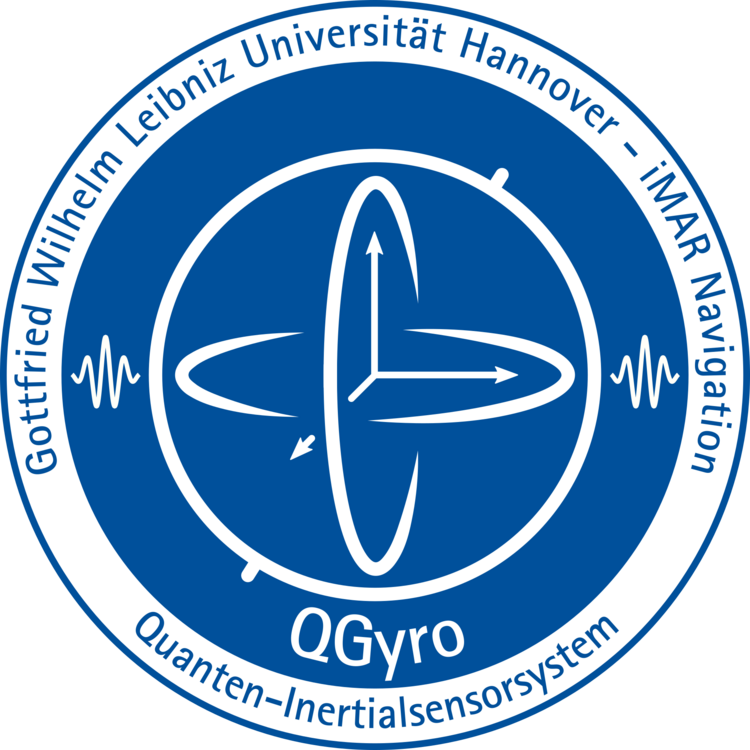Current Research Projects
QGyro: Quantum Optics Inertial Sensor Research

| Led by: | Prof. Dr.-Ing. Steffen Schön |
| E-Mail: | tennstedt@ife.uni-hannover.de |
| Team: | M.Sc. Benjamin Tennstedt, Dr.-Ing. Tobias Kersten |
| Year: | 2019 |
| Funding: | Federal Minitry of Economics and Climate Affairs (BMWK / DLR), grant number: 50RK1957 |
| Duration: | 2019 - 2022 |
| Is Finished: | yes |
Motivation
Quantum sensors such as optical clocks already achieved substantial improvements in terms of stability and accuracy through new measurement techniques. Up to now, developments of atomic interferometers have typically been single-axis and operated in a controlled environment. Transportable gravimeters, single-axis atomic interferometers on a ship, aircraft, and in a drop tower have been demonstrated, but do not meet the requirements for navigation. Furthermore, existing concepts for multi-axis sensors are either sequential with low data rates around 1 Hz or not experimentally implemented. Consequently, the step towards application in navigation has not yet been taken. Quantum inertial sensors are based on quantum mechanical sensing concepts in which accelerations and rotations are determined by means of spacetime or spatial surfaces enclosed by matter waves. They offer high sensitivity and superior long-term stability compared to conventional inertial sensors. This means that they exhibit a complementary error behaviour to classical inertial sensors and are therefore predestined to support them without having to reckon with losses in the autonomy of the navigation system.
Objective
High-precision quantum inertial sensors for supporting conventional inertial navigation sensors are to be developed and tested, which can then be expanded in various further development stages up to 6 degrees of measurement freedom and used for autonomous navigation.




